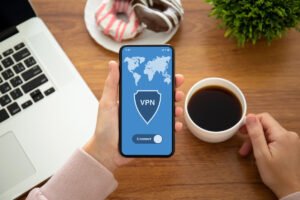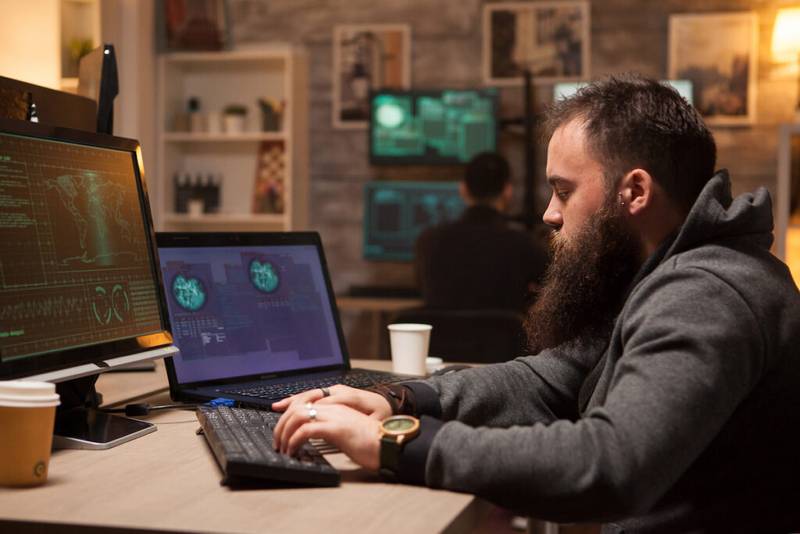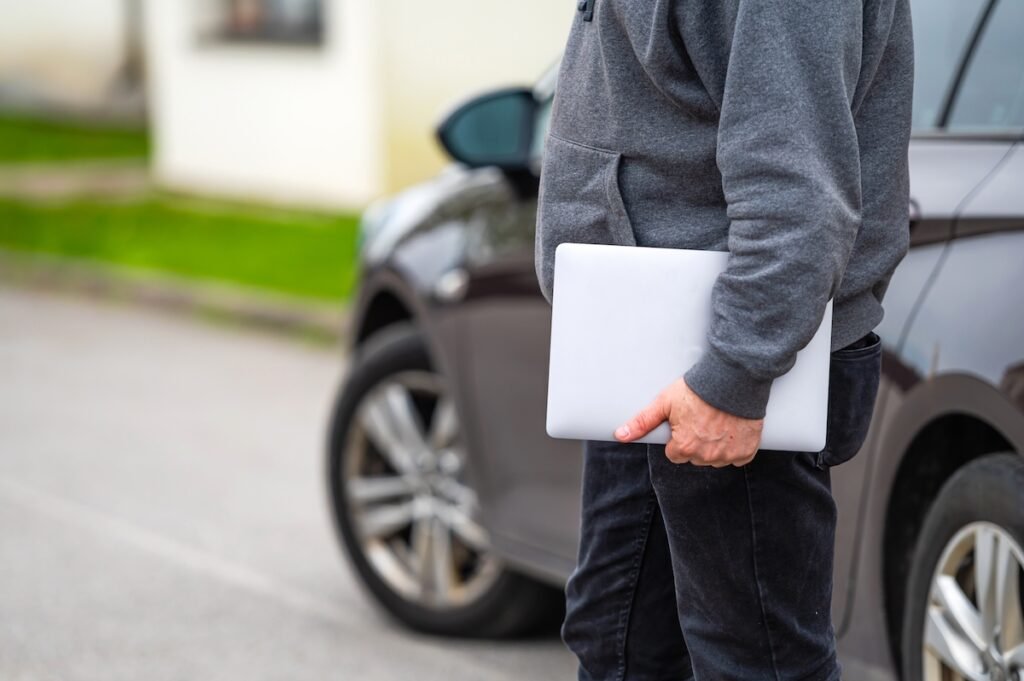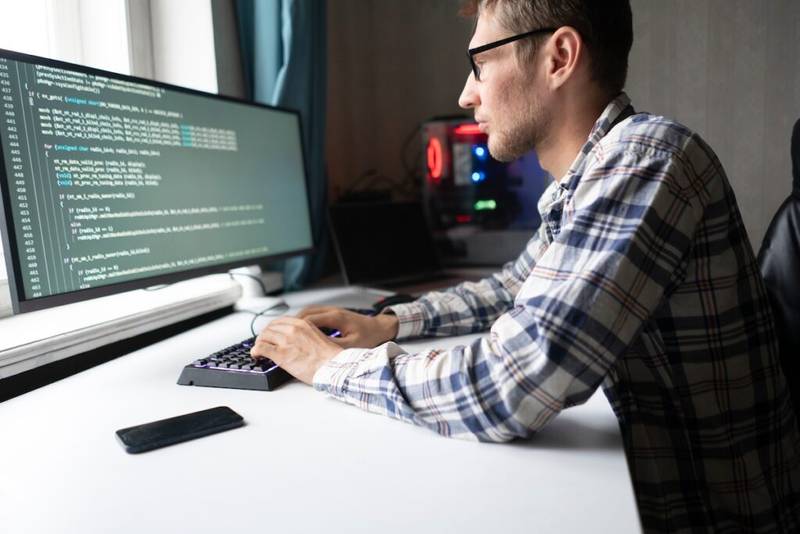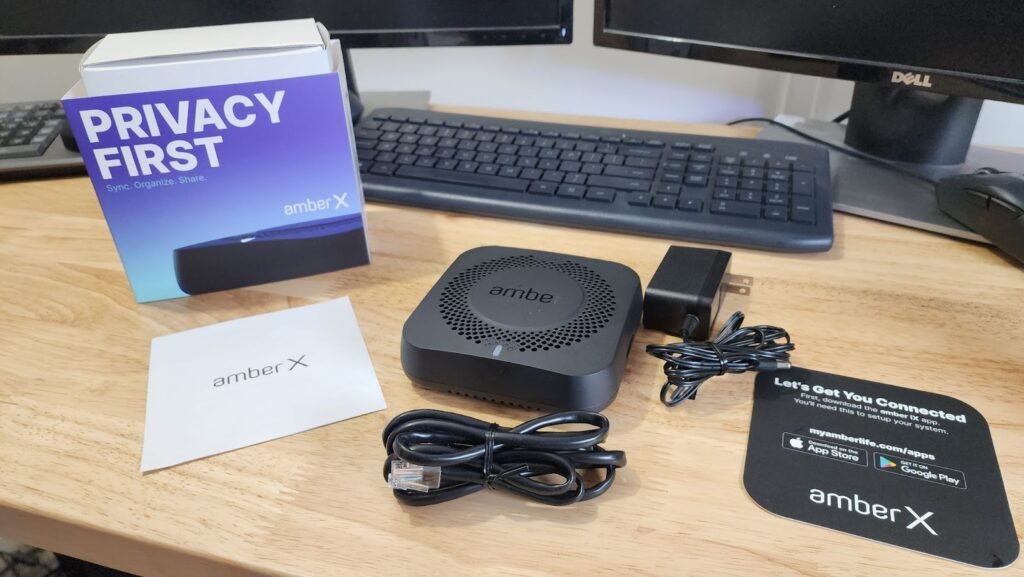Are you curious about Virtual Private Networks (VPNs)? Maybe you’ve heard a little bit about them, but you’re not sure what they are or if they’re right for you. We’ve spent quite a bit of time researching the most popular VPN questions and we’ll answer those questions about VPNs, so you can decide whether or not one is right for your family. We cover everything from what a VPN is to how they work and who can use them.
What Does A VPN Do?
A VPN, or Virtual Private Network, is a vital tool for protecting your online identity and activity. By routing your traffic through a secure server, a VPN encrypts all of your data, making it unreadable to anyone who might try to intercept it. This not only keeps you safe from hackers and government surveillance but also prevents ISPs from selling your data to advertisers. Additionally, a VPN can help bypass firewalls and access restricted websites.
VPNs are an essential tool for anyone who values online privacy and security. If you’re not already using one, I highly recommend using one. There are many benefits to using a VPN that you can take advantage of.
How Do VPNs Protect You?
A VPN, or Virtual Private Network, is a tool that helps to protect your online privacy and security. A VPN works by encrypting your internet traffic and routing it through a secure server. This means that your ISP (Internet Service Provider) and any other third party cannot see what you are doing online. Your data is also protected from any malicious attacks.
VPNs are particularly useful if you are using public Wi-Fi, as they help to keep your data safe from any potential hackers. They are also helpful if you want to access websites that may be blocked in your country. By connecting to a VPN server in another country, you can bypass these restrictions.
LEARN: Are The Benefits Of VPN Worth It?
Are VPNs Free?
There are a number of free VPN services available, but be aware that most of them are not as secure as paid services. For example, free VPNs may sell your data to third parties or include ads in your browsing experience.
That said, there are some good, reputable paid VPN services that offer a high degree of security and privacy. If you’re looking for a reliable and safe way to browse the internet privately and securely, a paid VPN service is the best option. We covered everything you need to know about free VPNs and which ones we think are the best.
Are VPNs Illegal?
I just want to set the record straight on this because I hear the myth of “VPNs are illegal” quite often. VPNs are not illegal. However, there are some activities that can be illegal when using a VPN. For example, if you use a VPN to commit cybercrime or engage in other illegal activity, then you could be breaking the law. Similarly, if you use a VPN to access blocked content or bypass government censorship, you may also be breaking the law in some countries. So it’s important to know what you’re doing before you connect to a VPN. That said, there are many legitimate uses for VPNs, and as long as you use one responsibly, there’s no reason to think that using a VPN is illegal. If you are traveling to another country and plan on using a VPN to access the content you’d otherwise get at home, double-check that country’s VPN laws. Better safe than sorry.
Do I Really Need A VPN?
Let’s be real, there aren’t a lot of things people in this world need. Now, if you’re wondering whether you need a VPN, the short answer is: it depends. I use that a lot, but in the tech world, there are so many diverse users that there are not many one-size-fits-all solutions. VPNs can be useful in a variety of situations, but they’re not necessary for everyone. Here’s a brief rundown of when you might want to use a VPN:
- If you want to keep your browsing history and online activity private from your internet service provider or government agencies.
- If you’re concerned about online security and privacy and want to make sure your data is encrypted
- Or if you’re accessing the internet from a public Wi-Fi network and want to safeguard your personal information.
I dove quite a bit into the Pros and Cons of using a VPN that cover a range of these topics on the essential practicality of using one.
Will A VPN Slow Down My Internet?
There’s no need to worry about a VPN slowing down your internet connection. If anything, using a VPN can actually improve your internet speeds by giving you access to a more direct and efficient route to the internet. In most cases, a VPN will actually make your internet connection faster and more reliable. The only time you might experience a slowdown is if your chosen VPN server is located further away from your actual location, which can sometimes happen if you’re using a free or lower-end VPN service. But even in that case, the difference in speed will usually be negligible. Have no fear about slower speeds when you use a VPN. For the most part, it won’t slow down your internet connection!
How Much Do VPNs Cost?
A VPN can cost as little as a few dollars per month or as much as a few hundred dollars per year, depending on the features and level of service you require.
Many businesses and individuals find that a mid-priced VPN service is the best option, as it provides good value for the money while still offering a range of features and options. However, if you only plan to use a VPN occasionally or for very specific purposes, then a lower-priced option may be all you need.
DISCOVER: Should You Use A VPN?
What Are The Disadvantages Of VPN?
There are a few potential disadvantages of VPNs. First, VPNs can be slow (depending on the service). This is because your data has to travel further to get encrypted and then sent back to you. Second, VPNs can be costly. Some providers charge a monthly fee, while others require you to purchase a subscription. Finally, not all VPNs are created equal. Some providers may be less reliable or have fewer servers in different locations around the world.
Can You Get Hacked Through VPN?
Using a VPN doesn’t make you invincible and immune to all things malicious that happen on the internet. Yes, you can get hacked through a VPN. A VPN creates a virtual encrypted tunnel between your device and the VPN server. This tunnel provides some level of security but is not foolproof. A hacker who is able to bypass the security of the VPN server could potentially access your data.
That said, using a VPN does provide some extra security and privacy that is not available when you are not connected to a VPN. If you are concerned about your online privacy and security, using a VPN is not just a good idea, it’s a great idea. Just be aware that it is not 100% foolproof and hackers may still be able to find ways to access your data.
What Does A VPN Not Protect You From?
A VPN will not protect you from viruses or other malware that may be on your device. It will also not protect you from someone monitoring your internet traffic or tracking your activities. Finally, a VPN will not protect you from being hacked if your device is already compromised.
What Is The Safest VPN?
There are a lot of different opinions on what the “safest” VPN is. It really depends on your specific needs and threats. For example, if you’re worried about government surveillance, then you might want a VPN that encrypts your traffic and provides strong security features. On the other hand, if you’re mostly concerned about hackers or identity thieves, then you might want a VPN with robust anti-spyware and anti-malware protection.
Ultimately, the safest VPN is the one that best meets your particular needs. Do some research and talk to people whose opinions you trust to find the right VPN for you. In my opinion, I love ExpressVPN and personally use it. I also layer on a little more security by using Firewalla Purple which has a built-in VPN.
Can VPNs Be Traced?
VPNs are an incredible way to protect your privacy and keep your data safe, but can they be traced? The answer is yes, VPNs can be traced, but only if the person or company doing the tracing has access to certain information.
For example, if you’re using a VPN service that is based in the US, then the US government could request access to logs of your activity on that VPN. However, if you’re using a VPN service that is based in a country with strong privacy laws, like Switzerland or Iceland, then it would be much more difficult for anyone to track your activity.
TRENDING: A Device With Built-In VPN And Monitoring Capabilities?
Will VPNs Hide My Location?
If you’re looking to hide your location, a VPN is a great tool. By routing your traffic through a VPN server, you can change your IP address and effectively disguise your location. However, it’s important to remember that VPNs can’t make you completely anonymous – if someone is determined to find out where you are, they may be able to do so by tracking your traffic. Nevertheless, using a VPN is a great way to protect your privacy and change your location online.
Can My Employer Track My Location Through VPN?
A VPN (virtual private network) is a secure connection between two or more devices. It can be used to connect your computer to your company’s network while you’re on the go or to encrypt your internet traffic and protect your privacy.
Your employer cannot track your location through a VPN. A VPN creates an encrypted tunnel between your device and the VPN server. This protects your data from being intercepted by anyone else on the network, including your employer. Your employer can see that you’re connected to the company’s network, but generally speaking, they cannot see what websites you are visiting or what files you are downloading.
Can I Leave A VPN On All The Time?
There is no one-size-fits-all answer to this question, as the best decision for you will depend on your specific needs and preferences. However, in general, it is a good idea to use a VPN whenever you are online, as it can help protect your privacy and security.
Which VPN Works With Netflix?
There are a lot of VPNs that work with Netflix, but the best one for you will depend on your specific needs. Here are a few of the most popular VPNs that work with Netflix:
ExpressVPN: This is a great all-around VPN that works with Netflix and other streaming services. It’s fast and reliable, and it has servers in over 80 countries.
NordVPN: This is another good option for streaming, and it has servers in over 60 countries. It’s also very affordable.
CyberGhost: This VPN is especially good for streaming, and it has servers in over 50 countries. It’s also very easy to use.
What Is A VPN Router?
VPN routers are special types of routers that have been pre-configured to connect to a VPN service. This means that you can connect any device that is capable of connecting to a router (e.g., desktop computer, laptop, tablet, smartphone, etc.) to the VPN service by simply connecting it to the router.
VPN routers are ideal for people who want to use a VPN service but don’t want to have to configure each individual device on their network to use the VPN service. They are also ideal for people who travel and want to be able to connect devices that they wouldn’t normally be able to connect (e.g., gaming consoles, Apple TV, etc.) while they are away from home.
Do I Need A VPN For My Business?
VPNs can be an essential part of a business security plan, especially if your employees work remotely. A VPN creates a secure connection between your device and the VPN server, allowing you to access the internet safely and anonymously.
When choosing a VPN for your business, be sure to choose one that offers strong security features and unlimited bandwidth. We’ve done a lot of research on which VPN is best for business.
Should I Use A VPN For My Phone?
There are a lot of reasons why you might want to use a VPN on your phone. A VPN can help protect your privacy by hiding your identity and location, and it can also allow you to access content that’s blocked in your region.
Whether or not you should use a VPN depends on your needs and what type of VPN service you’re using. If you’re looking for privacy and security, then a paid VPN service is probably the best option. However, if you just want to access content that’s blocked in your region, then a free VPN service might be enough.
We wrote reviews for the best VPNs for Android devices and the best VPNs for Apple iOS devices to help you really dive into whether or not you should be using a VPN for your phone.
What Are Dale’s Favorite VPNs?
If you can’t tell, I really love VPNs. When it comes to data security and data privacy, I think it’s a no-brainer that everyone should be using a VPN. With that said, here are my favorite VPNs:
Express VPN
ExpressVPN is one of my favorite VPN services. Not only are they a major player in this niche, but with servers located all over the world and unlimited bandwidth, you can’t go wrong! Plus their support is impeccable. I’m happy to say that after trying out several competitors’ services it’s nice knowing there’s one provider who will always have an answer for me when I need one fast (and reliable).
Norton Secure VPN
Norton Secure VPN is a great option for those who need to protect their information from hackers. One of Norton’s best features is their split-tunneling and anonymous browsing with a no-log policy. Essentially that means things like online purchases are never tracked!



